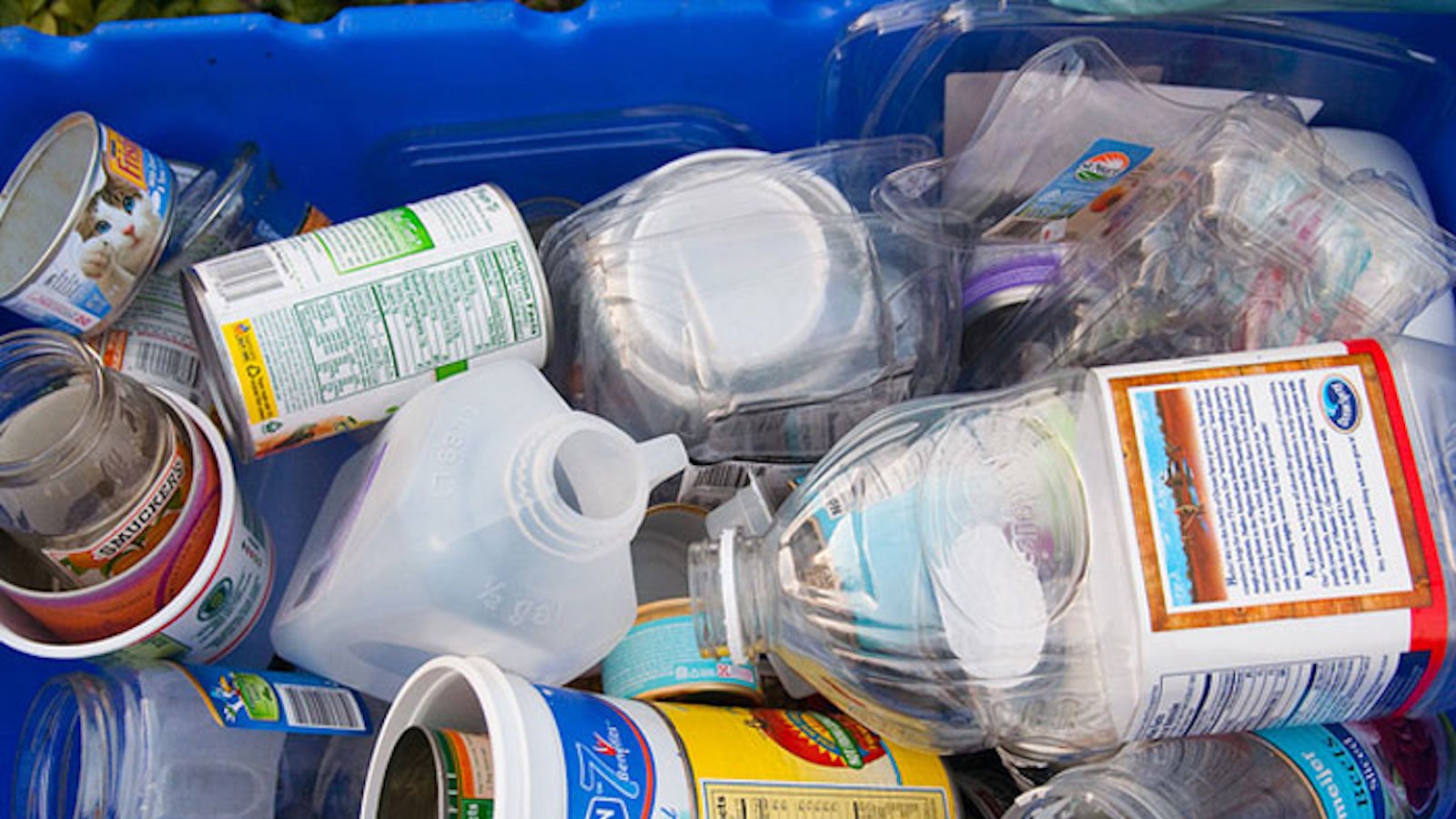A Guide to Navigating Chicago’s Privatized Recycling System
(Knowing how to properly clean, sort and deposit our recycled goods could increase Chicago’s dwindling recycling rates / Photo: Steven Depolo)
 |
By Molly O'Mera, Reporter, The Real Chi |
|---|---|
For Chicagoans, the recycling process is often shrouded in mystery. COVID-19 led to an increase in overall personal waste, yet recycling rates in Chicago have been falling for years. Urban legends spread about how some recycling bins go straight to landfills, and the search for answers brings up even more questions around what can and can’t be safely recycled.
Is this a problem that is unique to our city? And what can we do to make recycling easier for our residents? The Real Chi decided to dig a little deeper on these topics and uncover some of the truth in the murky business of recycling.
If a container of recycled goods contains some non-recyclable materials, there’s a good chance the whole bin can be thrown out
You may have heard this rumor before, and it can be confirmed as mostly true. When multiple non-recycled materials show up in a recycling container, that container may be considered “contaminated” and the whole of it thrown out (a.k.a. sent to a landfill).
If you want to be sure your recycled goods don’t end up at a landfill, you can take them yourself to a plant
There are two plants in Chicago for drop off - one in South Loop, the other in Rogers Park - but make sure to note that these items have to be cleaned and sorted first!
You need to wash or clean your recycled materials
Having waste or debris still attached to recycled items - such as food stuck to the inside of tin cans - can disqualify a whole container of recycling as contaminated. The only notable exception to this is peanut butter jars, which are ok to have some product still within. Waste Management, Chicago’s recycling service, reports that around half of their materials are contaminated.
It’s not always clear what you can and can’t recycle
Rules recycling change often as we grow wiser to which objects cause problems in systems, which is often hard to predict for the average recycler. There are local resources online to tell you whether an item should be tossed in the blue bin or the black one, and we’ve put some of the most common offenders in this list for good measure.
Recyclable in Chicago: glass, junk mail, aluminum foil
Not recyclable in Chicago: pizza boxes, straws, coffee cups, plastic bags
The government does not process our recycled waste - private companies do
Part of the reason why our recycling systems seem so unclear is that they are handled by private companies who do the hauling for the city. The main two in Chicago are Sims Metal Management and Waste Management, who last year was accused by Ald. Raymond Lopez (15th Ward) of holding an unfair monopoly over the local recycling market after their recent acquisition of a smaller firm.
Our recycling system does not meet the standards of other major U.S. cities
Recycling effectiveness is often measured by the percentage of households who participate, which is around 8% in Chicago. This is less than half of New York City’s 18%, and Los Angeles’ 20%. Reasons for low participation can include lack of confidence in the recycling system, and confusion around which materials qualify. Additionally, recycling activists have said Chicago is much less transparent about its waste data than other cities.
Chicago lacks an official overseeing body on recycling and overall sustainability
Eight years ago then-Mayor Rahm Emanuel notoriously threw out the city's Department of the Environment. No governing body has since been formed to fill its place, though activists propose it’s resurrection or the introduction of a Department of Sustainability. Chicago is the sole of the top 10 major U.S. cities to lack such a governing body.
Knowing the rules of recycling can make the practice less complicated, but the journey doesn’t end here. Recycling is a continuous effort that requires our daily participation, and the payoff is worth it. Now that you know the rules, educate your friends and family to try and keep the cycle going.

